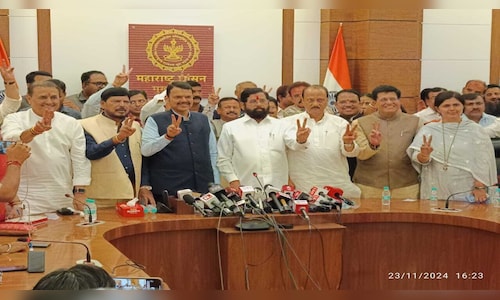
In Maharashtra, the BJP-led Mahayuti alliance swept the elections in the 288-seat assembly, a performance that exceeded predictions. According to BJP spokesperson Gopal Krishna Agarwal, the success can be attributed to a combination of factors, most notably the leadership of Prime Minister Narendra Modi and the tireless efforts of the RSS. Agarwal emphasized how the RSS’s work in consolidating Hindutva votes and targeting Dalit communities played a significant role in the BJP’s win. He also credited the party’s strong communication and narrative-building strategies in countering the Opposition’s misinformation, particularly about BJP policies and the Constitution.
Congress spokesperson Saral Patel, while acknowledging the BJP’s success, pointed out that the reliance on RSS support signals a shift from PM Modi’s personal popularity, which was central to the BJP’s earlier victories in 2014 and 2019. Patel also raised concerns about the alleged misuse of government agencies like the IT department and ED in Maharashtra, which, according to the Congress, may have influenced the election outcomes.
Also Read | Maharashtra Election Results 2024 Live: Eknath Shinde says the next CM is not decided yet
In Jharkhand, the JMM-Congress-RJD alliance, led by the Jharkhand Mukti Morcha (JMM), emerged victorious. Political analysts, including Business Standard’s AK Bhattacharya, highlighted the growing importance of regional leaders and the shift toward welfare-focused campaigns. Bhattacharya pointed out that the Mahila Samman Program, which targets women, has played a critical role in boosting the JMM’s performance. The focus on welfareism, particularly welfare for women, is increasingly shaping the political narrative in both Maharashtra and Jharkhand.
Political analyst Sajjan Kumar echoed this sentiment, noting that the Ladki Bahin Yojana, a prominent welfare initiative in Maharashtra, had a profound impact on women voters. Kumar observed that this scheme, along with other cash transfers, helped shift household dynamics, making women a crucial voting bloc. This shift is indicative of a broader change in India’s electoral politics, where welfare for women is becoming an essential element for winning votes. The BJP’s emphasis on women-friendly schemes has clearly resonated with voters, especially in households where women are the primary beneficiaries of such initiatives.
Also Read | Jharkhand Election Results 2024 Live: Did BJP lose chance to win due to one key decision?
The rise of regional leaders, coupled with the focus on welfare, has fundamentally altered the dynamics of Indian electoral politics. While national leadership remains important, regional players and localized issues are becoming increasingly influential. In Maharashtra, the emergence of new-generation leaders, such as Eknath Shinde, who resonate more with younger voters, contrasts with the older generation’s loyalty to figures like Sharad Pawar and Balasaheb Thackeray.
Ultimately, the 2024 elections in Maharashtra and Jharkhand highlight a critical shift in India’s political narrative, where regional leadership, welfareism, and women voters are playing a more prominent role. The lessons from these elections are clear: welfare schemes, particularly those aimed at women, are now central to securing electoral success, and regional dynamics are taking precedence over national leadership in determining political outcomes.
For more, watch the accompanying video



